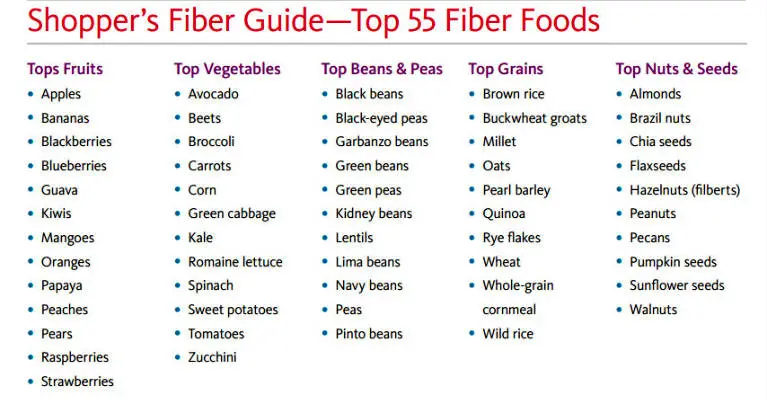In today’s modern world, it is very difficult to control one’s weight thanks to appetizing desserts, junk food, and sugary drinks. This has led to a majority of adults and children being obese and risking their lives due to different complications such as diabetes, cancer, and cardiovascular problems.
When it comes to weight management, many people are waiting for news that a miracle food has been found therefore resulting in quick weight loss. While this cannot happen, there are available foods with minerals and nutrients that will help one lose weight. Fiber for weight loss has been found to also promote metabolic markers such as blood pressure, cholesterol levels, and blood sugar.
How Does Fiber Help with Weight Loss?
Fiber for weight loss is derived from various foods such as fruits and vegetables. When one consumes foods rich in fiber, fiber helps to improve the metabolism rate.
For an obese person, fat is usually stored around various body parts are the hips, the thighs, and the waist.
When one consumes foods rich in carbohydrates and fats, the body can convert the carbs into glucose and use them together with the fat as energy to power various body functions.
The quantity converted into glucose for energy is usually small therefore the rest is converted into fat and stored in the body.
Continued accumulation of fat leads to obesity. Fiber helps to increase the metabolic rate in the body, therefore, leading to fat burning which is used as energy.
Apart from that, fiber acts as an agent that helps to promote the quick passage of food.
When you consume fiber-rich foods, it takes longer to chew therefore triggering the body’s sense of feeling full.
When it comes to satiation, the reason this occurs is that the brain is said to be 10 min behind the stomach. Acting as an appetite suppressor as well as improving metabolism in the body are some of the ways fiber allows one to lose weight.
There are two types of fiber:
1. Soluble: it is known to work with lower cholesterol levels and it binds fatty acids. It is known to slow down glucose absorption and also facilitates the cells to burn (instead of storing) more sugar for energy. It also helps to regulate insulin levels which is a vital function especially when it comes to diabetics. It acts as an appetite suppressant, therefore, allowing one to eat less.
2. Insoluble: as a fat-fighting fiber, it travels through the intestine when completely intact therefore it is responsible for balancing acidity in the intestines, removing toxic waste from the colon, and preventing constipation. It also helps to absorb swells and water in the colon, therefore, encouraging fast elimination of toxins and stool from the system.
Foods rich in fiber for weight loss include apples, apricots, blackberries, dates, kiwifruit, mangoes, raspberries, barley, bran, bulgur, millet, artichokes, cabbage, corn, kale, lettuce, squash, lentils, peanuts, and sesame seeds.
Source / Reference: Medicine NET | Healthline

